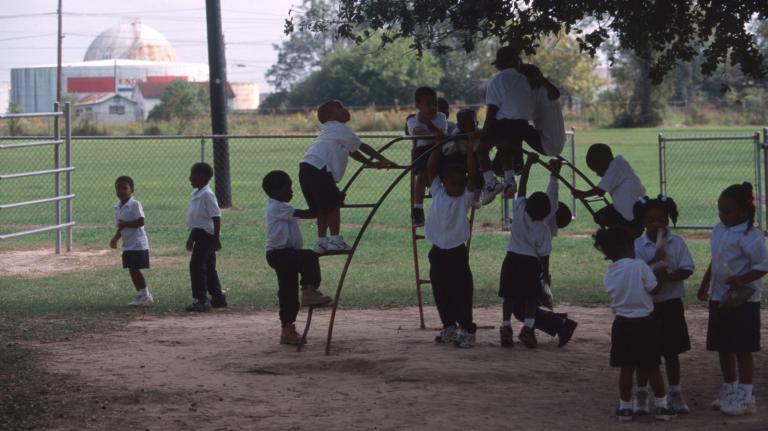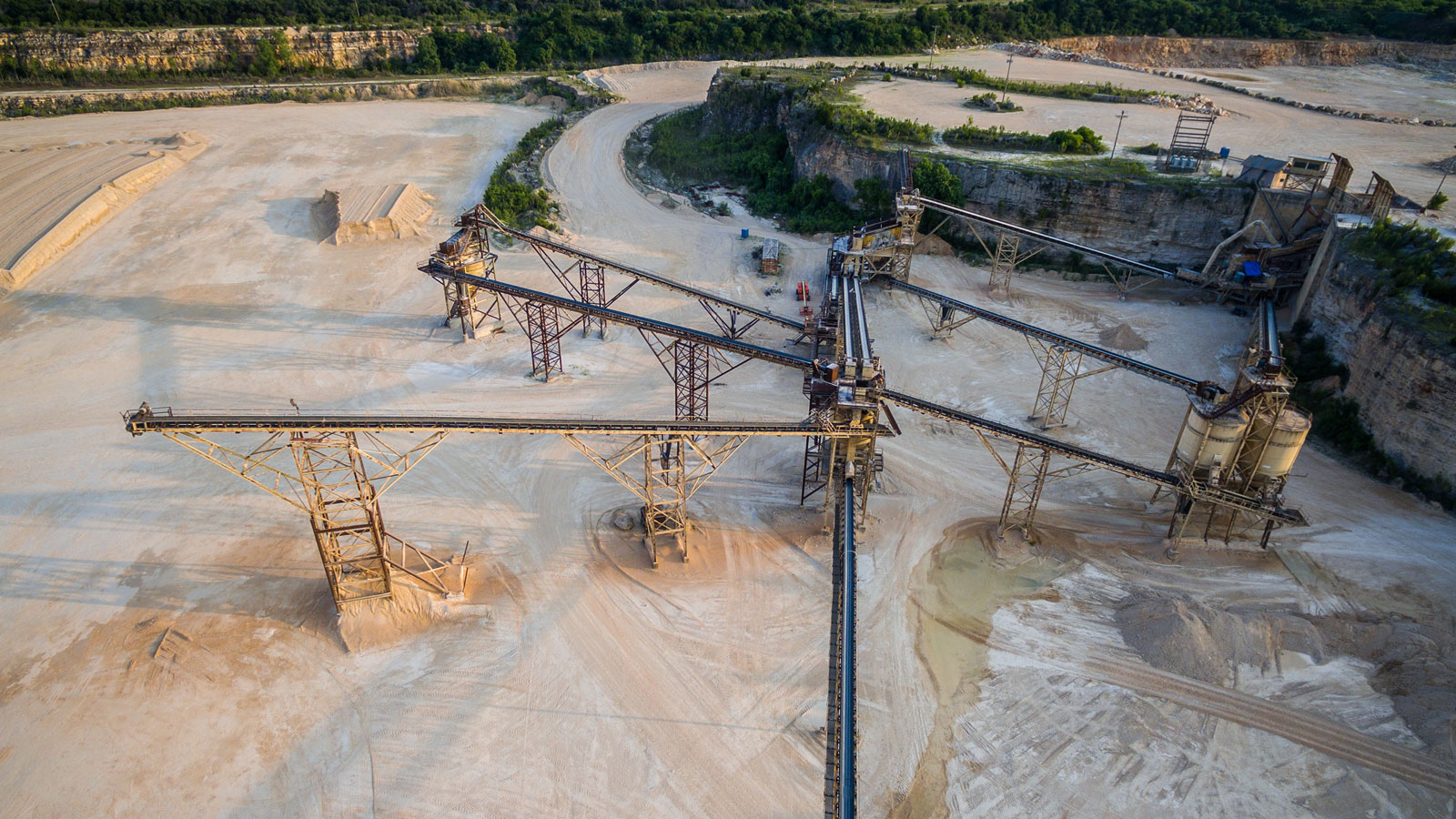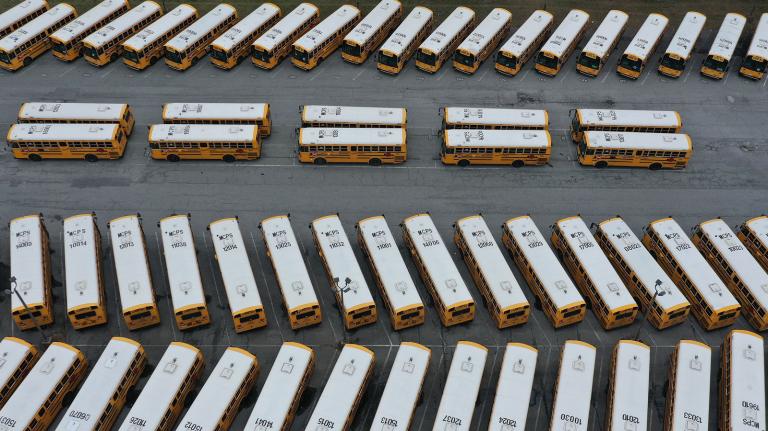Stephen E. Lindemann is a farmer and sustainability advocate based in Texas Hill Country.
About a year ago, I was kayaking down the Llano River, about 80 miles west of Austin, Texas. It’s spring-fed and runs through the countryside, representative of the state’s beauty. I was paddling a usually serene route when I noticed the water becoming shallow and the bottom of my kayak scraping the riverbed. Straight ahead I could see why: Several large excavating machines atop crude dams in the middle of the river had altered the water flow.
I got out and lifted the kayak onto my shoulder, resigned to portaging my boat the length of what seemed like three football fields. As I walked along the shallow shoreline, huge dump trucks and dredging machines towered overhead. There was a cacophony of beeping and clanging as the trucks were loaded with many tons of sand and rock. The machinery lumbered across the river from the town of Llano, which was also subjected to what the building industry calls “harvesting.”
Austin’s population is famously expanding. Its growth requires the construction of new homes, buildings, roads, and infrastructure — and that requires aggregate. The word sounds benign; not nearly as triggering as “oil and gas extraction” or “vanishing aquifers and water pollution.” Aggregate is the term for earthen materials such as rock, sand, and gravel that make up a large percentage of building materials, including concrete. Creating roadways, structures, sidewalks, and driveways generally requires extracting these materials from the country and moving them to the city.
Under our feet and beneath our cars these pieces of earth lay as dormant as they were before. However, rather than holding together the fabric of a living ecosystem that supports the diversity of life in this region, they are now the unnatural corridors engineered to benefit our single species.
Texas ranks first in the nation for production of aggregates, according to the U.S. Geological Survey. We’ve held that rank in years prior. But as the Austin American-Statesman reported in a multipart investigation, the Lone Star State also has some of the most slack regulatory laws and oversight in the nation. For instance, the state enforces minimal requirements for companies to monitor air quality or the water supply around mining sites, which kick up a lot of dust and particulates that can sicken residents. The state has denied permits for extraction operations only a handful of times in the last decade. And after a quarry has been stripped, companies aren’t required to do much, if any, restoration — they often leave the earth scarred and barren. One state representative told the paper, “Frankly, Texas is number 50 in terms of managing or providing oversight to surface mining. … There is very little regulation.”
According to Texans for Responsible Aggregate Mining, an aggregate-industry watchdog, 43 states (representing 82 percent of the U.S. aggregate industry) have implemented regulations similar to the federal Surface Mining Control and Reclamation Act of 1977, which requires environmental assessments of mining-operation plans before permits are issued, including for water use, land reclamation, and infrastructural planning.
If you grow, you build. If you build, you extract. If you extract, you diminish or damage resources.
Texas is different. In 2003, then-Governor Rick Perry formed the Advisory Committee for Rock Crushers and Quarries, which submitted a report to the legislature with proposals for increasing oversight and permitting requirements for the industry. Unfortunately, it was not signed by the majority of the committee. In 2021, the House Interim Study Committee on Aggregate Production Operations reported on the aggregate industry and found that the industry’s growth “has been largely fueled by the rapid economic growth of the state overall” and that “the overarching view” of the state’s representatives was that “something needed to be done to limit the negative impact” of extraction operations on individuals’ health and quality of life. The report prompted more than two dozen bills in the 2021 legislative session that sought to regulate air, water, and light pollution, as well as reclamation and permitting requirements. Only two passed.
Austin’s population has doubled to more than 2 million over the last two decades and continues growing. According to a Consumer Affairs analysis of 2020 Census data, nine of the 15 fastest-growing cities are in Texas. The state expects its population to grow from 29.7 million people in 2019 to 54.4 million people by 2050. But what many current and prospective urban dwellers may not realize is that the countryside surrounding these cities is being broken apart at the cost of progress. If you grow, you build. If you build, you extract. If you extract, you diminish or damage resources.
Industry leaders and lobbyists argue that more regulation isn’t necessary, and that the cost of their products will rise if policymakers enact stricter rules. But according to Texans for Responsible Aggregate Mining, mining and aggregate operations that must adhere to more stringent regulations see an average increase in operational costs of only 3 to 6 percent while protecting communities and ecosystems. In other states, proposed operations must go through a more democratic and environmentally considerate approval process. In Texas, such a process might limit dredging and mining to less sensitive areas or to locations farther from residential communities.
For me, the natural flow of water is humbling and life-affirming. Mining of aggregates from a river or surrounding landscape may indeed be necessary for progress, but the needs of the ecosystem must be balanced. As the conservation network Hill Country Alliance points out, the Llano River feeds the Highland Lakes, which supplies the majority of water for Austin as well as other municipalities along the Colorado River, all the way to the Gulf of Mexico.
What happens in the rural parts of Texas affects everyone downstream. When I am floating my kayak down a quiet, unmarred stretch of the Llano close to its headwater springs, I see how it was, how it should be.
The views expressed here reflect those of the authors.
Fix is committed to publishing a diversity of voices, and we want to hear from you. Got a bold idea, fresh perspective, or insightful news analysis? Send a draft, along with a note about who you are, to opinions@grist.org.



